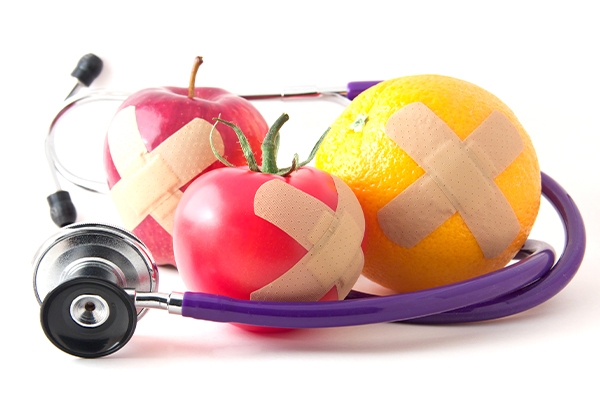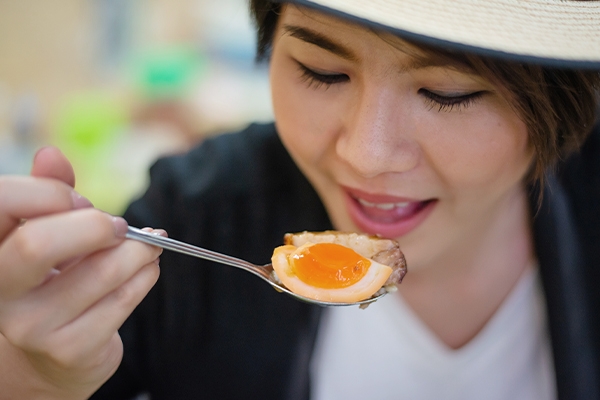Vitamins That Help Wounds Heal Faster

Wound healing isn’t just about what you apply on the outside. It also depends heavily on what you consume daily. One of the common reasons wounds take longer to heal is poor nutritional intake, especially in people with certain health conditions.
In older adults, who are more prone to chronic wounds, malnutrition is quite common. It could be due to a lack of energy and protein, or deficiencies in specific vitamins and minerals.
Read more: Vitamins That help Wounds Heal Faster.
In people with diabetes, high blood sugar levels can interfere with nutrient absorption. This can lead to lower levels of important substances like magnesium, zinc, vitamin B12, B6, and folic acid.
Wounds, especially chronic ones, increase the body’s metabolic needs. They produce exudate that contains protein.
Losing this protein can weaken the immune system, even though immune cells play a key role in the healing process and rely heavily on protein to function properly.
Nutrients that support faster wound healing

To support wound recovery, the body needs help from within in the form of calories, protein, vitamins, minerals, and specific amino acids. Calories provide energy to keep the body functioning, including healing.
Protein is essential for building, maintaining, and repairing tissues. Losing protein due to a wound can weaken your immune system and slow healing.
Amino acids
Two amino acids are especially important when it comes to wound healing: arginine and glutamine.
- Arginine supports inflammation processes and collagen synthesis. It also stimulates the production of growth hormone and activates T cells.
- Glutamine plays a role in metabolism, enzyme activity, antioxidant defense, and immune function. It protects the body from infection and inflammation and is also a precursor to glutathione, one of the body’s most powerful antioxidants, which helps stabilize cell membranes.
Vitamins that aid wound recovery
Vitamins and minerals are essential "tools" for tissue regeneration. Some have specific roles in the healing process:
1. Vitamin A
Helps control inflammation, supports the formation of epithelial tissue and bones, and strengthens the immune system.
Natural sources: pumpkin, eggs, kale, carrots, sweet potatoes.
2. B Complex Vitamins
Especially B6, B12, and folate. They help with protein and carbohydrate metabolism and support cell growth and movement.
Natural sources: eggs, milk, fish.
3. Vitamin C
Crucial for new collagen synthesis and acts as a powerful antioxidant. Especially beneficial for burn wound healing.
Natural sources: oranges, kiwis, bell peppers, papayas, dark leafy greens.
4. Vitamin E
Known as a key fat-soluble antioxidant that protects cells from damage and helps reduce scare.
Natural sources: almonds, peanuts, hazelnuts, vegetable oils.
Other Vitamins and Minerals

Wound healing doesn’t rely on just one or two vitamins.
Nutrients work together in synergy. Here are some additional nutrients that also play vital roles:
1. Vitamin D
Helps control inflammation and supports the formation of new tissue.
Natural sources: fatty fish, egg yolks, fortified dairy products, UV-exposed mushrooms.
2. Vitamin K
Plays a role in blood clotting and works with vitamin D in calcium regulation for tissue repair.
Natural sources include leafy greens like spinach, kale, and mustard greens, as well as fermented foods like natto and sauerkraut.
3. Other essential minerals
- Iron – found in red meat and lentils.
- Zinc & Copper – found in nuts and seeds.
- Magnesium – found in pumpkin seeds and almonds.
- Selenium – found in Brazil nuts and saltwater fish.
Interestingly, vitamin D needs magnesium to be activated.
Meanwhile, vitamin K helps vitamin D regulate calcium, which is essential for tissue regeneration. That’s why a balanced diet is far more effective for healing than relying on a single supplement.
Want your wound to heal faster?
Don’t just focus on external treatments. Support the healing process from within by ensuring your body gets the right nutrients. Meet your daily needs for protein, vitamins, and minerals through a well-balanced diet.
And if you're recovering from a chronic wound or managing a condition like diabetes, consider speaking with a doctor or nutritionist for tailored guidance.



